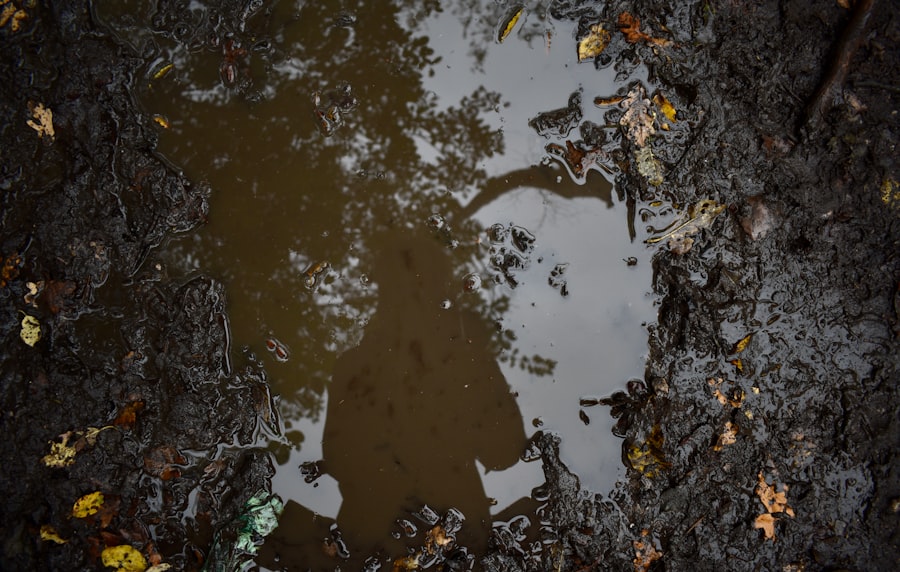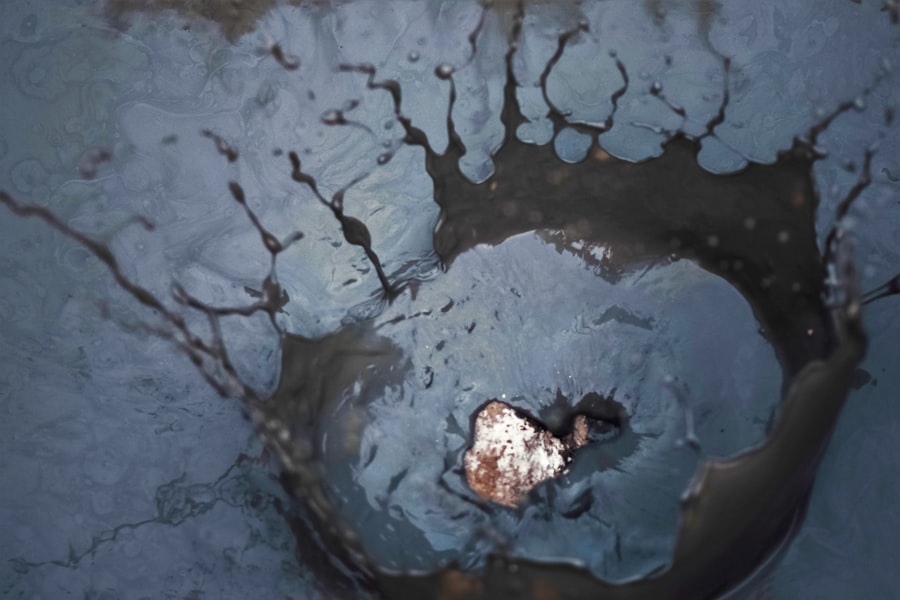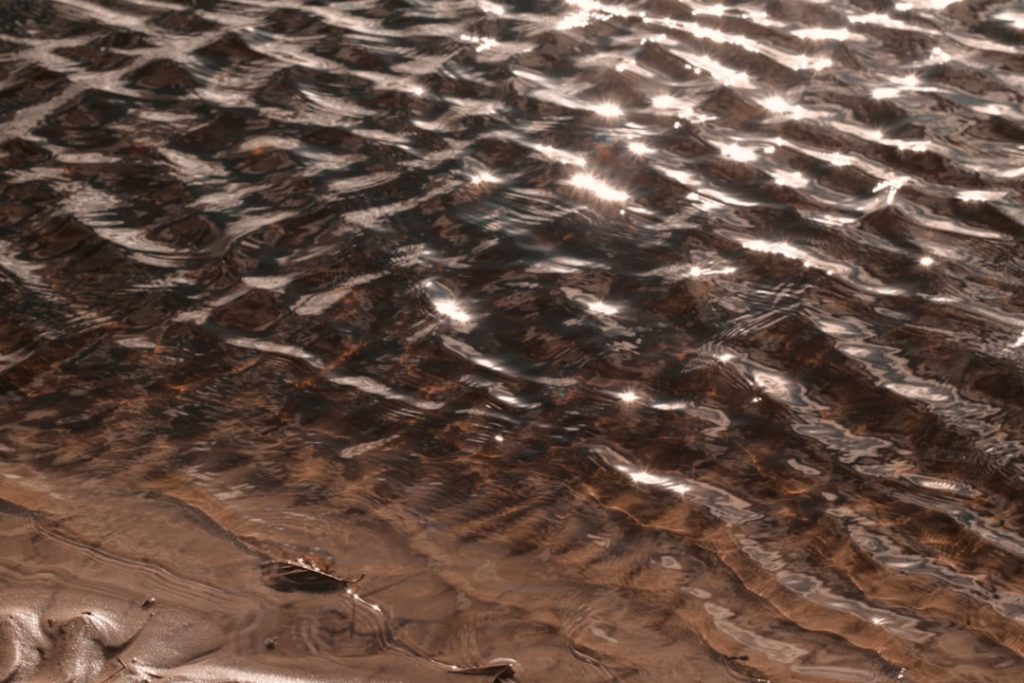Clean water is essential for the health and well-being of chickens. Chickens require access to clean water for hydration, body temperature regulation, and digestion. Water is crucial for egg production, as hens need a constant supply to lay healthy eggs.
Clean water also helps prevent the spread of diseases and infections among the flock, as contaminated water can harbor harmful bacteria and pathogens. Chicken owners should prioritize water cleanliness to ensure the overall health and productivity of their flock. Providing chickens with constant access to clean water is vital for their health and well-being.
Inadequate clean water supply can lead to dehydration, resulting in reduced egg production, poor growth, and potentially death in severe cases. Clean water also plays a key role in maintaining proper electrolyte and nutrient balance in chickens’ bodies, which is essential for their overall health and vitality. Chicken owners should regularly monitor and maintain water sources to ensure they remain clean and free from contaminants.
Table of Contents
- 1 Common Causes of Dirty Chicken Water
- 2 Health Risks Associated with Dirty Water for Chickens
- 3 Tips for Keeping Chicken Water Clean
- 4 The Role of Watering Systems in Maintaining Clean Water for Chickens
- 5 The Impact of Dirty Water on Egg Production and Overall Chicken Health
- 6 The Importance of Regular Maintenance for Chicken Water Sources
- 7 FAQs
Key Takeaways
- Clean water is essential for the health and well-being of chickens, as it impacts their overall health and egg production.
- Common causes of dirty chicken water include contamination from feed, droppings, and environmental factors.
- Dirty water can lead to health risks for chickens, such as dehydration, disease, and reduced egg production.
- Tips for keeping chicken water clean include regular cleaning and maintenance of waterers, using proper filtration systems, and providing fresh water daily.
- Watering systems play a crucial role in maintaining clean water for chickens, as they can help prevent contamination and ensure a constant supply of fresh water.
Common Causes of Dirty Chicken Water
Environmental Factors
Environmental factors such as rain, mud, and dust can easily dirty water sources, especially if they are not properly protected or covered. If water containers are not regularly cleaned and maintained, they can become breeding grounds for algae, bacteria, and other contaminants that can make the water unsafe for chickens to drink.
Contamination from Feed and Other Sources
Furthermore, if feed or other substances come into contact with the water source, it can quickly become contaminated, leading to potential health risks for the flock. Another common cause of dirty chicken water is the use of inadequate or unsanitary water containers.
Inadequate Water Containers
If water containers are not designed specifically for chickens or are not properly cleaned and maintained, they can easily become dirty and contaminated. Additionally, if water containers are not placed at the appropriate height for chickens to drink from, they can become soiled with dirt, feces, or bedding material, making the water unsuitable for consumption.
Importance of Regular Inspection
It is important for chicken owners to regularly inspect their water containers and ensure that they are clean, properly maintained, and free from contaminants in order to provide a safe and healthy water source for their flock.
Health Risks Associated with Dirty Water for Chickens

Dirty water can pose significant health risks for chickens, as it can harbor harmful bacteria, parasites, and other pathogens that can make the flock sick. Drinking contaminated water can lead to a range of health issues for chickens, including digestive problems, respiratory infections, and even more serious illnesses such as salmonella or E. coli. Additionally, dirty water can also attract pests such as flies and mosquitoes, which can further spread diseases and cause discomfort for the flock. Therefore, it is crucial for chicken owners to be aware of the potential health risks associated with dirty water and take proactive measures to ensure that their water sources remain clean and safe for their flock. In addition to the direct health risks posed by drinking contaminated water, dirty water can also have a negative impact on the overall well-being and productivity of chickens. For example, if chickens are not provided with a clean and adequate supply of water, they may become dehydrated, which can lead to reduced egg production, poor growth, and decreased immune function. Furthermore, if chickens are consistently exposed to dirty water, it can cause stress and discomfort, which can compromise their overall health and vitality. Therefore, it is important for chicken owners to prioritize the cleanliness of their water sources in order to prevent potential health risks and ensure the well-being of their flock.
Tips for Keeping Chicken Water Clean
There are several tips that chicken owners can follow to keep their chicken water clean and safe for their flock. Firstly, it is important to regularly clean and sanitize water containers to prevent the buildup of algae, bacteria, and other contaminants. This can be done by using a mild detergent and hot water to scrub the containers thoroughly, followed by rinsing them with clean water before refilling them.
Additionally, it is important to regularly inspect water containers for any signs of damage or wear and tear, as this can provide opportunities for contaminants to enter the water source. Another important tip for keeping chicken water clean is to protect water sources from environmental factors such as rain, mud, and dust. This can be done by using covers or shelters to shield water containers from the elements and prevent them from becoming soiled or contaminated.
Additionally, it is important to regularly monitor the surrounding area for any potential sources of contamination, such as feed spillage or feces, and take proactive measures to prevent these from coming into contact with the water source. By implementing these tips and maintaining a proactive approach to water cleanliness, chicken owners can ensure that their flock has access to a safe and healthy water source at all times.
The Role of Watering Systems in Maintaining Clean Water for Chickens
Watering systems play a crucial role in maintaining clean water for chickens, as they can help to minimize contamination and ensure a consistent supply of fresh water for the flock. Automatic watering systems such as nipple drinkers or cup drinkers are designed to provide a continuous flow of clean water without the risk of contamination from environmental factors or other sources. These systems are also designed to minimize spillage and waste, which can help to keep the surrounding area clean and dry.
Additionally, automatic watering systems can help to reduce the workload for chicken owners by providing a reliable supply of water without the need for constant monitoring and refilling. In addition to automatic watering systems, there are also various types of water filters and purifiers that can be used to maintain clean water for chickens. These devices are designed to remove impurities and contaminants from the water source, such as sediment, chlorine, or bacteria, in order to provide a safe and healthy supply of water for the flock.
By incorporating these technologies into their water management practices, chicken owners can ensure that their flock has access to clean and safe drinking water at all times. Overall, watering systems play a critical role in maintaining clean water for chickens and are an important consideration for chicken owners looking to prioritize the health and well-being of their flock.
The Impact of Dirty Water on Egg Production and Overall Chicken Health

Dirty water can have a significant impact on egg production and overall chicken health. When chickens are provided with a contaminated or inadequate supply of water, it can lead to dehydration, which can have a direct impact on egg production. Dehydrated hens may lay fewer eggs or produce eggs with poor quality shells, which can ultimately affect the productivity and profitability of the flock.
Additionally, dirty water can also lead to an increased risk of diseases and infections among the flock, which can further compromise their overall health and well-being. Furthermore, dirty water can also have a negative impact on the growth and development of young chicks. Chicks that are not provided with a clean and adequate supply of water may experience stunted growth or developmental issues, which can have long-term implications for their health and productivity as they mature.
Therefore, it is crucial for chicken owners to prioritize the cleanliness of their water sources in order to ensure optimal egg production and overall chicken health. By providing a clean and safe supply of water for their flock, chicken owners can help to promote healthy growth, productivity, and well-being among their chickens.
The Importance of Regular Maintenance for Chicken Water Sources
In conclusion, maintaining clean water sources is essential for the health and well-being of chickens. Dirty water can pose significant health risks for chickens and can have a negative impact on egg production and overall flock health. Therefore, it is important for chicken owners to prioritize the cleanliness of their water sources by implementing regular maintenance practices such as cleaning and sanitizing water containers, protecting water sources from environmental factors, and utilizing watering systems and purification technologies.
By taking proactive measures to ensure that their flock has access to a safe and healthy supply of water at all times, chicken owners can help to promote optimal health, productivity, and well-being among their chickens. Regular maintenance of chicken water sources is crucial for ensuring the overall health and productivity of the flock.
If you’re struggling with keeping your chickens’ water clean, you may want to consider investing in a chicken coop that includes a built-in water system. Poultry Wizard has a helpful article on what kind of coop is best for chickens, which includes information on different coop designs and features that can help keep your chickens’ water supply cleaner for longer. Check it out here.
FAQs
Why do chickens keep getting their water dirty?
Chickens can dirty their water by kicking up dirt and debris while scratching and pecking around the water source. They may also defecate in the water, leading to contamination.
How can I prevent chickens from dirtying their water?
You can prevent chickens from dirtying their water by using a waterer with a cover or a nipple system that keeps the water off the ground. Placing the waterer in a raised location can also help keep it clean.
What are the risks of chickens drinking dirty water?
Chickens drinking dirty water are at risk of ingesting harmful bacteria, parasites, and other contaminants. This can lead to health issues and decreased egg production.
How often should I clean my chickens’ waterer?
It is recommended to clean and refill your chickens’ waterer at least once a day to ensure they have access to clean, fresh water.
Are there any natural ways to keep chickens’ water clean?
You can add apple cider vinegar to your chickens’ water to help keep it clean and discourage algae growth. Additionally, using a waterer with a filter can help keep the water clean.
Meet Walter, the feathered-friend fanatic of Florida! Nestled in the sunshine state, Walter struts through life with his feathered companions, clucking his way to happiness. With a coop that’s fancier than a five-star hotel, he’s the Don Juan of the chicken world. When he’s not teaching his hens to do the cha-cha, you’ll find him in a heated debate with his prized rooster, Sir Clucks-a-Lot. Walter’s poultry passion is no yolk; he’s the sunny-side-up guy you never knew you needed in your flock of friends!







